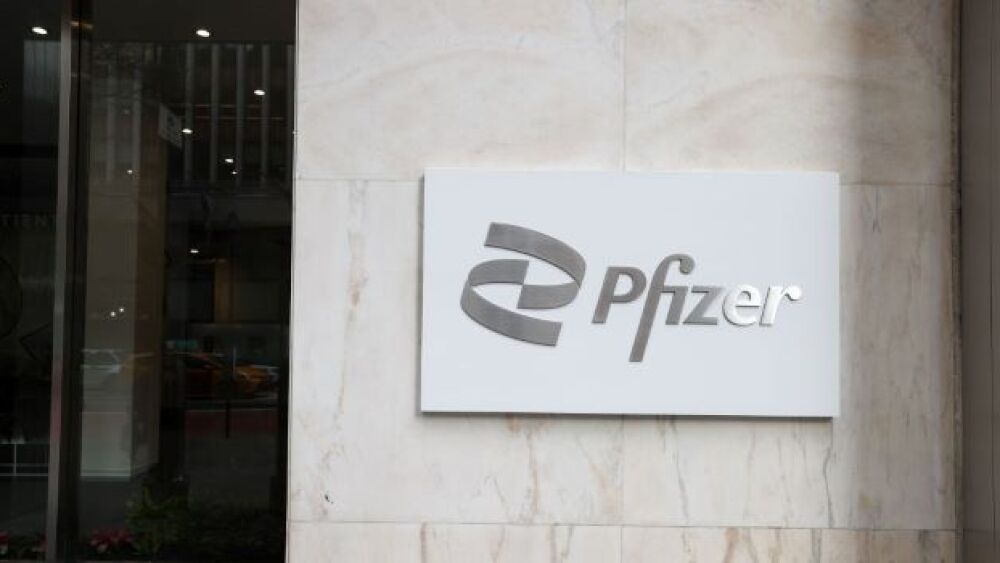The data may show the need for one, but vaccine and immunologists are pushing back against Pfizer and BioNTech’s contention that one is necessary now.
Tayfun Coskun/Anadolu Agency via Getty Images
Executives from Pfizer met with government health officials yesterday to discuss Pfizer and BioNTech’s contention that booster shots for their COVID-19 vaccine will be necessary.
On July 9, the two companies announced plans to request Emergency Use Authorization (EUA) for a third shot, based largely on early data from a clinical trial that showed a booster dose six months after the second shot in the two-shot regimen had a consistent tolerability profile but created high immune responses against the Wuhan wildtype strain and the Beta (South African) variant.
They also cited data from a Nature study and a report from the Israel Ministry of Health suggesting that the vaccine’s efficacy for both preventing infection and symptomatic disease decreased six months after vaccination but still prevented severe illness and death.
The decision to recommend boosters will not be made by drug companies but by public health officials. The data may show the need for one, but vaccine and immunologists are pushing back against Pfizer and BioNTech’s contention that one is necessary now.
Although Pfizer and BioNTech may be correct on the science, they are not without a conflict of interest in recommending additional shots. Pfizer has forecast $26 billion in COVID-19 revenue for 2021 after reporting $3.5 billion in revenues from it in the first quarter of the year.
Anthony Fauci, President Biden’s chief medical advisor and director of the National Institute of Allergy and Infectious Disease, told CNN’s “State of the Union” after the meeting that the U.S. Centers for Disease Control and Prevention (CDC) and the Food and Drug Administration (FDA) are currently saying, “given the data and the information we have, we do not need to give people a third shot, a boost, superimposed upon the two doses you get with the mRNA (Pfizer-BioNTech and Moderna vaccines) and the one dose you get with (Johnson & Johnson).”
He indicated there were still studies being conducted to determine if and when the U.S. would recommend booster shots. “There’s a lot of work going on to examine this in real time to see if we might need a boost. But right now, given the data that the CDC and the FDA has, they don’t feel that we need to tell people right now you need to be boosted,” Fauci said.
Some in the Biden Administration appear concerned that reports of a needed booster shot would undermine public confidence in the current dosages. But the overall impression the top health officials are giving is that Pfizer-BioNTech is getting ahead of the data.
Fauci told STAT, “As [FDA acting commissioner] Janet Woodcock reminded everyone, we’re talking about issues that are regulatory issues and public health recommendation issues and Advisory Committee on Immunization Practices issues. We’re a long way from that. People are jumping the gun here.”
Pfizer, on its part, said, “Both Pfizer and the U.S. government share a sense of urgency in staying ahead of the virus that causes COVID-19, and we also agree that the scientific data will dictate next steps in the rigorous regulatory process that we always follow.”
Tedros Adhanom Ghebreyesus, director-general of the World Health Organization (WHO) issued a pointed statement to Pfizer-BioNTech and other vaccine manufactures who seem to be focusing on booster shots particularly to high-income countries. He insisted that the world needs Pfizer and Moderna to prioritize vaccines to low- and middle-income countries, as well as through COVAX, a joint program of the WHO, Gavi, the Vaccine Alliance, and CEPI, the Coalition for Epidemic Preparedness Innovations.
Ghebreyesus stated, “We’re making conscious choices right now not to protect those in most need.” And although death rates dropped for about 10 weeks, the global COVID-19 impact is climbing again. “Not everywhere is taking the same hit, though. We’re in the midst of a growing two-track pandemic where the haves and have-nots, within and between countries, are increasingly divergent.”
Soumya Swaminathan, WHO’s chief scientist, stated, “It may well be that you need boosters after a year or two years. But at this point, at six months after the primary dose, there doesn’t seem to be any indication.”
Four countries, including the UK, have indicated they will begin offering booster shots to some of their populations, which would require an additional 800 million doses of vaccine.
Mike Ryan, head of WHO’s health emergencies program, said, “What part of ‘This is a global crisis’ are we not getting? We will look back in anger and we will look back in shame if we don’t now move to use the increasing [vaccine] production capacity that is coming on line … to protect the most vulnerable, protect the frontline health workers around the world.”
John Moore, an immunologist at Weill Cornell Medicine, said, “There are scientific issues. There are ethical issues. What is the priority? In America, at the moment, it’s getting doses one and two out to as many people as possible, particularly in undervaccinated regions. … And a booster for people who got their vaccine less than six months ago doesn’t seem to be on the same degree of urgency.”
There are also questions about paying for a booster. The U.S. government has spent billions of dollars on vaccines and has options to acquire more. But it’s not yet clear if buying additional doses would require funding approval from Congress.
Jen Psaki, the White House press secretary, said yesterday that the administration wants “to have maximum optionality, including depending on what is most effective with children under the age of 12, including if there is a booster shot needed. So that certainly has long been in our planning, even in advance of knowing whether that will be a recommendation made by our health experts.”





